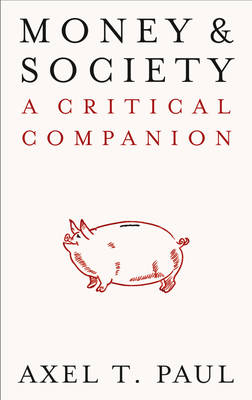
- Afhalen na 1 uur in een winkel met voorraad
- Gratis thuislevering in België vanaf € 30
- Ruim aanbod met 7 miljoen producten
- Afhalen na 1 uur in een winkel met voorraad
- Gratis thuislevering in België vanaf € 30
- Ruim aanbod met 7 miljoen producten
Zoeken
€ 156,45
+ 312 punten
Uitvoering
Omschrijving
This is a comprehensive, critical introduction to the sociology of money, covering many topics, from the origins of money to its function today. Though our coins, bank notes and electronic tokens do function as means of exchange, money is in fact a social, intangible institution. This book shows that money does indeed rule the world. Exploring the unlikely origins of money in early societies and amidst the first civilizations, the book moves onto inherent liaison with finance, including the logic of financial markets. Turning to the contemporary politics of money, monetary experiments and reform initiatives such as Bitcoin and positive money, it finally reveals the essentially monetary constitution of modern society itself. Through criticizing the simplistic exchange paradigm of standard economics and rational choice theory, it demonstrates instead that money matters because it embodies social relations.
Specificaties
Betrokkenen
- Auteur(s):
- Uitgeverij:
Inhoud
- Aantal bladzijden:
- 192
- Taal:
- Engels
- Reeks:
Eigenschappen
- Productcode (EAN):
- 9780745341958
- Verschijningsdatum:
- 20/11/2020
- Uitvoering:
- Hardcover
- Formaat:
- Genaaid
- Afmetingen:
- 140 mm x 216 mm
- Gewicht:
- 376 g

Alleen bij Standaard Boekhandel
+ 312 punten op je klantenkaart van Standaard Boekhandel
Beoordelingen
We publiceren alleen reviews die voldoen aan de voorwaarden voor reviews. Bekijk onze voorwaarden voor reviews.











